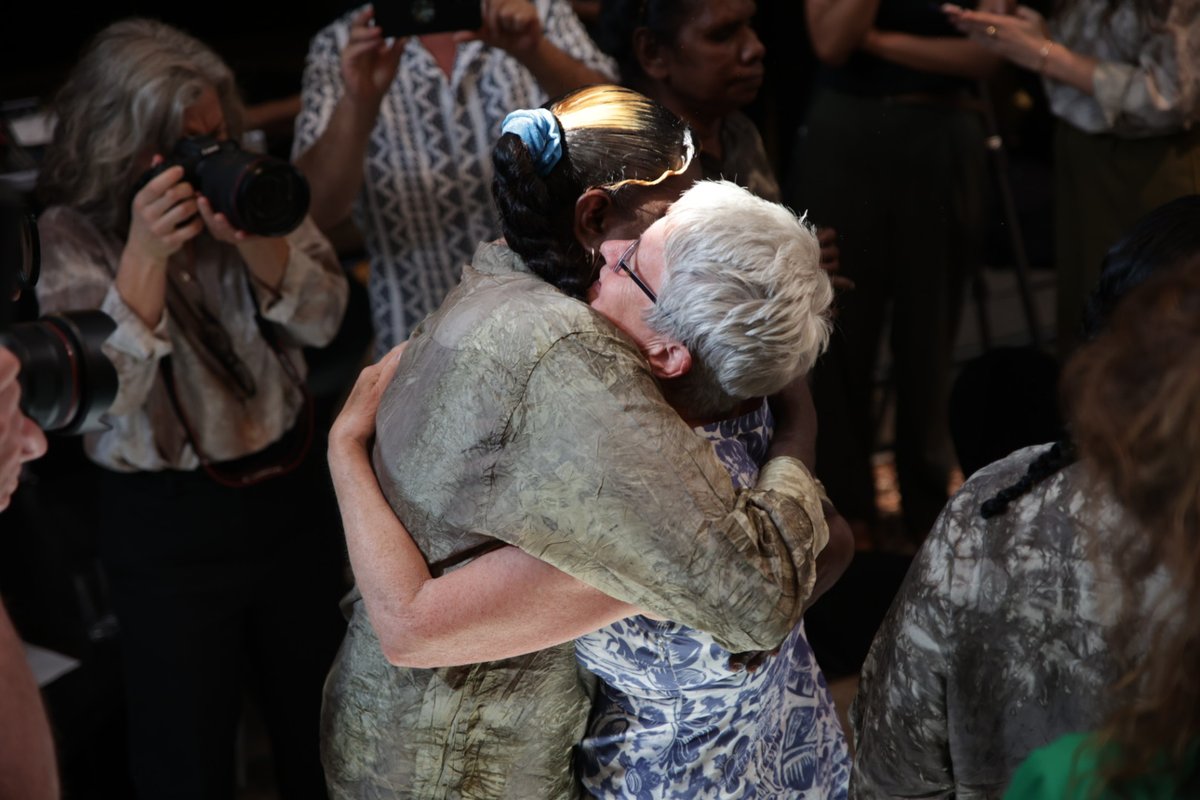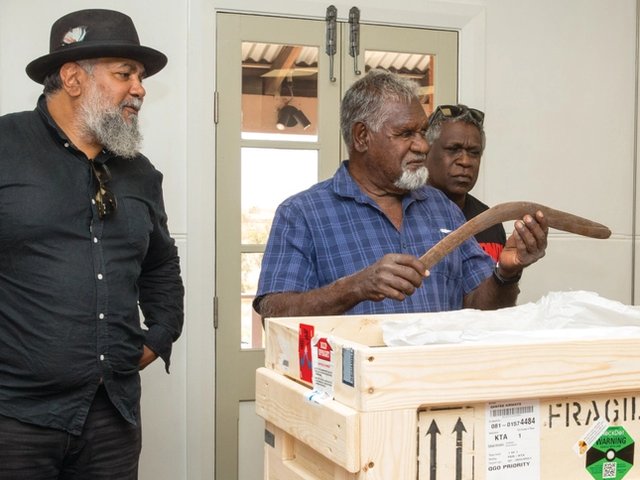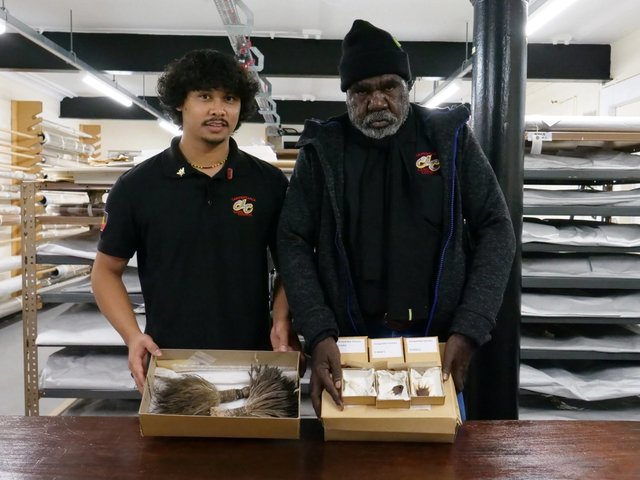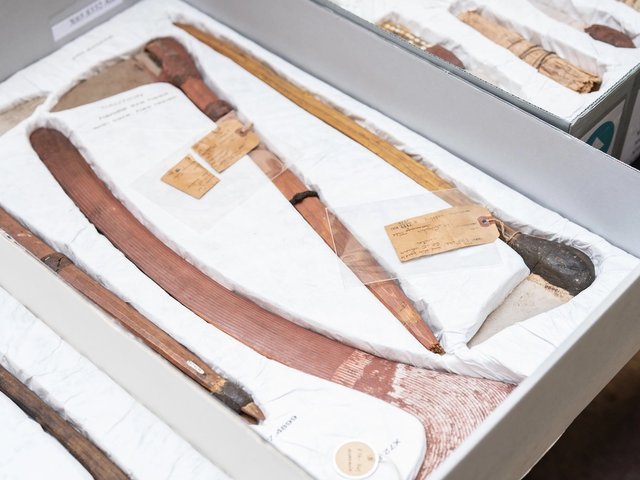Manchester Museum, UK, has handed over 174 items to the Australian Aboriginal Anindilyakwa Community in a ceremony held today, marking one of the largest restitution projects ever undertaken in the UK. The 174 items have been formally returned to Anindilyakwa representatives who have travelled from Groote Eylandt, an island located around 50 kilometres from the north coast of mainland Australia.
The works restituted come from the collection of Peter Worsley, a former professor of sociology at The University of Manchester. According to a museum statement, Worsley developed strong relationships with the Anindilyakwa community while undertaking research for his PhD in the 1950s. He died in 2013.
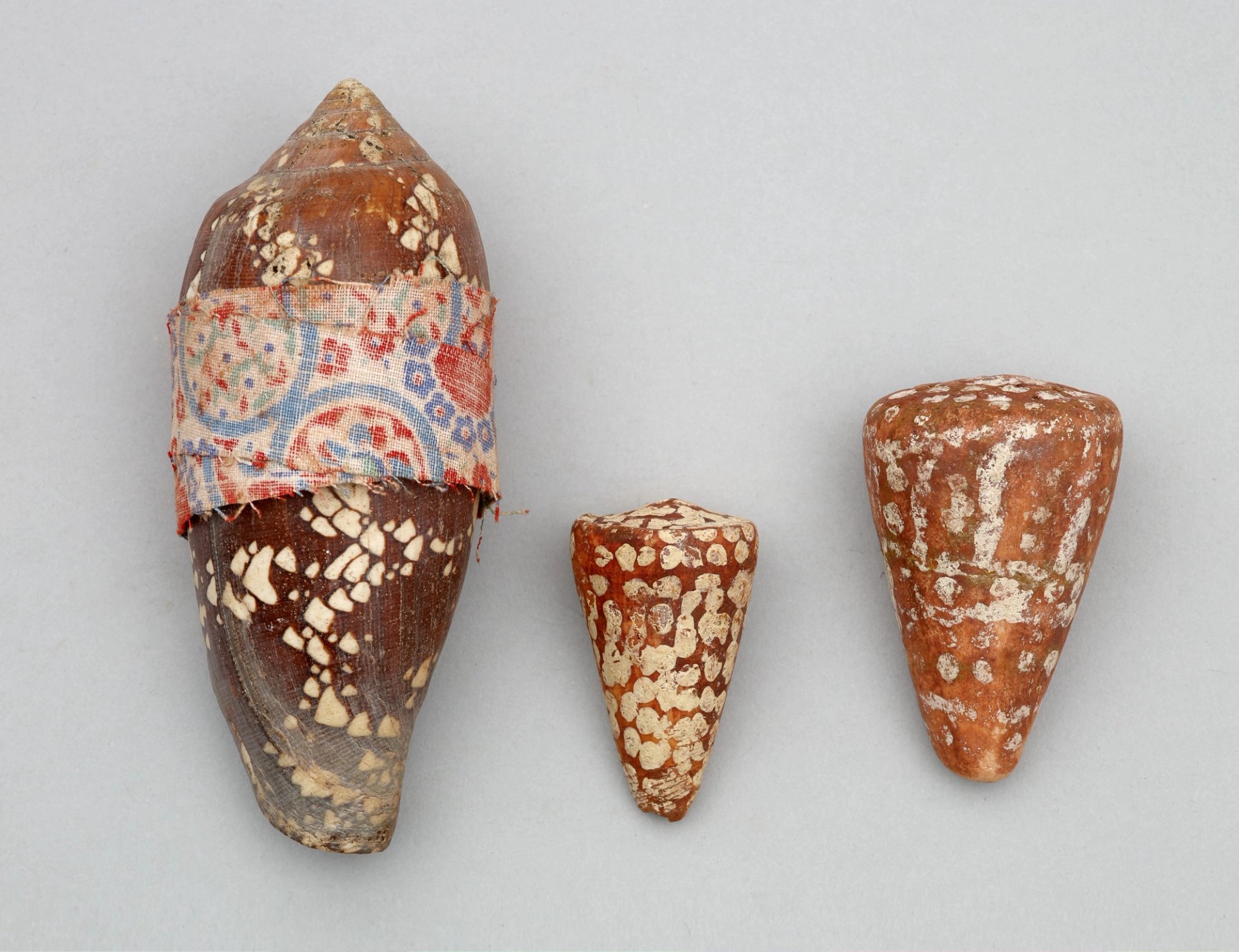
Dadikwakwa-kwa (shell "toy dolls") Photo: Michael Pollard/Manchester Museum, 2022
“During this time, he purchased, traded and acquired the collection [in good faith] from the community,” adds the statement. Items repatriated include five yimangala (spear throwers) along with five ajamurnda (stringy-bark baskets) and 70 dadikwakwa-kwa, which Worsley described as shell “toy dolls” used by young Anindilyakwa girls.
According to an online statement, Manchester Museum worked collaboratively with the Australian Institute of Aboriginal and Torres Strait Islander Studies and the Anindilyakwa Land Council over a three-year period to “determine where these items should live and could best inspire future generations”.
Stephen Smith, Australian high commissioner to the United Kingdom, said in a statement: “The return of these significant cultural heritage items is important for Australia’s reconciliation process. It also helps renew cultural practices and safeguard such practices and items for future generations.”
In 2019, Manchester Museum returned 43 ceremonial objects to other Australian Indigenous communities such as the Aranda people and the Gangalidda Garawa.


